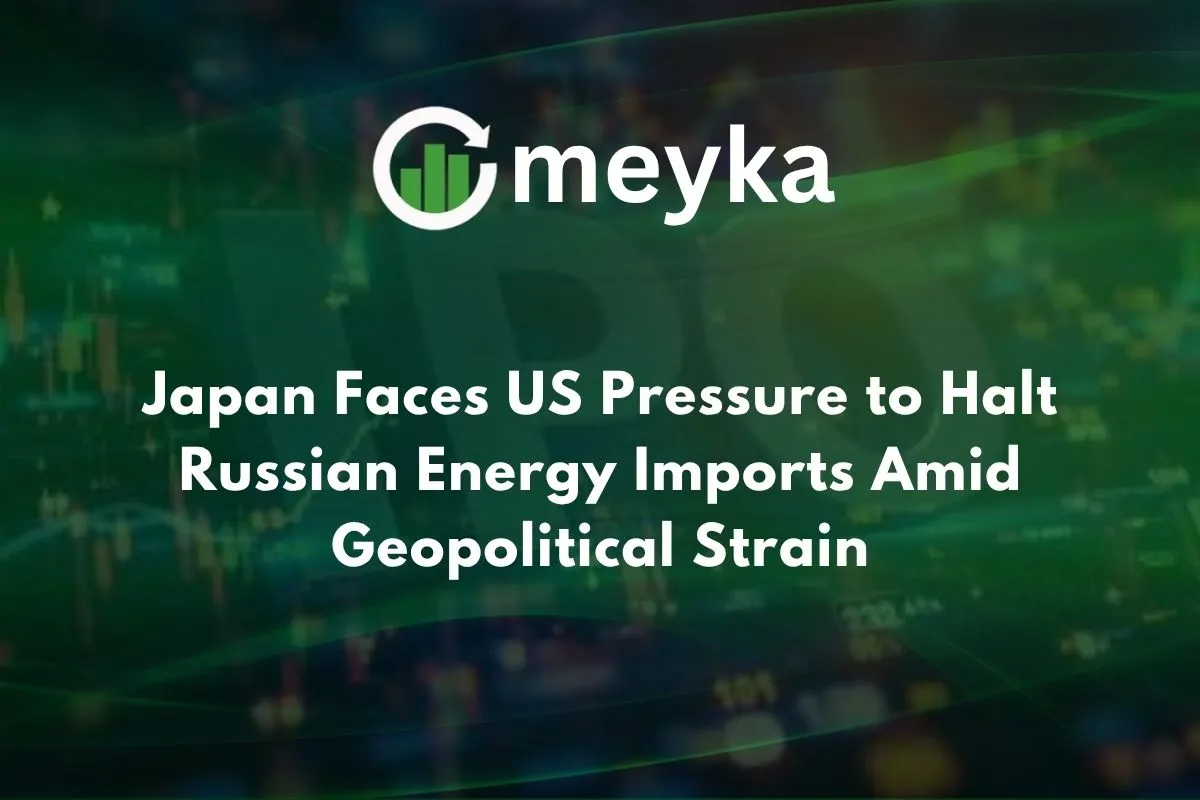Japan Faces US Pressure to Halt Russian Energy Imports Amid Geopolitical Strain
Japan is deep in an energy bind. It still relies on Russian energy, particularly liquefied natural gas (LNG) tied to the Sakhalin-2 project. Yet, the United States is now pressing Tokyo to sever those ties. In recent meetings, U.S. Treasury Secretary Scott Bessent made clear that he expects Japan to stop importing Russian energy.
At first glance, this demand may seem straightforward. But for Japan, it is anything but. Removing Russian energy from its mix could push up costs, threaten supply stability, and test diplomacy. As we watch how Japan responds, we face a case study in how a country balances principle, survival, and alliances.
We’ll explore how Japan currently depends on Russian energy. Then we’ll examine the U.S. pressure, Japan’s tough choices, and possible paths forward. We’ll also look at reactions from Russia, the domestic debate in Japan, and what the future may hold for Tokyo’s energy policy.
Japan’s Dependence on Russian Energy
Japan imports nearly all of its energy. It has virtually no large reserves of oil or natural gas domestically. This makes it vulnerable and dependent on international suppliers. One of Japan’s key links to Russian energy is via the Sakhalin-2 project. That development includes oil and gas fields off Russia’s Sakhalin Island. Some of Japan’s LNG imports come from this venture, and associated “Sakhalin Blend” crude still finds its way into Japanese energy flows.
Roughly 9% of Japan’s LNG imports are associated with assets in Sakhalin. For Japan, such supplies are not marginal; they form a meaningful part of the energy puzzle. Without them, some sectors would struggle, particularly in winter or during peak demand periods.
Japanese firms (like Mitsui and Mitsubishi) have shares in Sakhalin projects. That means Tokyo is not simply a buyer; it is also an investor. That makes cutting ties more complicated.
The Source of U.S. Pressure
Why is the United States pushing so hard now? The short answer: geopolitics and sanctions.
After Russia launched its full-scale attack on Ukraine in 2022, the United States and its allies began tightening economic pressure on Moscow. And its allies have sought to tighten the economic screws on Moscow. They argue that continued import of Russian energy helps fund Russia’s war machine. That is the core logic behind the demand that Japan and others withdraw support.
During a meeting in Washington, Secretary Bessent told Japan’s Finance Minister that the U.S. expects Japan to stop importing Russian energy altogether. Tokyo has already joined the G7 signals to phase out Russian oil, but still purchases Sakhalin Blend crude.
This is more than bilateral persuasion. It is coordinated with broader sanctions regimes and economic diplomacy. The U.S. is eager to shift demand toward American LNG as a replacement.
A proposed Sanctioning Russia Act of 2025 in the U.S. Congress would go further. It includes potential tariffs on countries continuing to import Russian oil and gas as punishment. If it passes, Japan could face stronger economic pressure from Washington.
Japan’s Geopolitical Dilemma
Japan’s dilemma is striking. It wants to stay loyal to its U.S. alliance, a pillar of its security. But it also must keep its energy lights on. If Japan simply cuts off Russian energy overnight, it risks energy shortages or price shocks. That could hurt consumers and the industry. Meanwhile, Russia looms nearby, and Tokyo must guard regional stability and strategic interests.
Japan is also under constant diplomatic observation. How it responds affects its reputation in Asia and beyond. The nation must show it can act responsibly, but also smartly.
In the Indo-Pacific, Japan faces rising tensions involving China, Taiwan, and territorial disputes. It cannot afford a misstep in energy policy that weakens it. Thus, every choice has ripple effects beyond just energy.
Economic and Energy Security Challenges
Switching away from Russian energy is not just a political choice. It’s a hard economic and technical challenge. We know Japan imports almost all of what it needs. Removing Russian sources forces Tokyo to find replacements. Often at a greater cost. With global demand high, new supplies are more expensive and harder to secure.
Industrial firms may resist. If energy costs spike, production becomes less competitive. Households will feel the pain through higher bills. Seasonal peaks, especially during cold months, make reliability crucial. Japan cannot risk rolling blackouts.
Public sentiment matters. Voters expect a steady supply and affordable power. The government must protect citizens from disruptions.
Alternative Energy Sources and Strategies
So what can Japan do?
One option: import more LNG and oil from non-Russian sources. Japan already has deals with U.S. producers and is eyeing new contracts. U.S. LNG is more expensive in some cases, but the move helps diversify risk. Tokyo has even considered backing parts of the Alaska LNG project to deepen ties with the U.S. energy supply.
At the same time, Japan is pushing its Green Transformation (GX) goals. The aim: expand renewables (solar, wind), energy storage, and greater efficiency. That helps reduce total reliance on fossil imports.
Nuclear power is part of the debate again. Japan once scaled it back after Fukushima, but energy pressures have revived talk of safer, smaller reactors or restarting existing ones.
Over time, Japan hopes to decarbonize and rely more on domestic, clean energy, reducing its vulnerability to geopolitical supply shocks.
Russia’s Reaction and Regional Dynamics
How does Russia see all this? Likely, with strategic concern.
Moscow may threaten retaliatory moves, such as restricting energy exports to Japan or demanding tougher terms. It holds the leverage of being a supplier. Some Russian energy flows may be diverted to China or other buyers. Indeed, China has already grown as a major customer for Russian gas and oil in recent years.
Meanwhile, Russia’s control over Arctic and Far East routes gives it strategic flexibility. Those routes may gain more importance if sanctions deepen.
In effect, energy becomes a form of geopolitical leverage; “energy blackmail” is a term often used to describe when a state uses its energy supply as a political tool. Japan must navigate that risk carefully.
Domestic Political Debate in Japan
Inside Japan, the debate is lively.
The government says it wants to act “in coordination with G7” and aims for a balance. But it also emphasizes energy security as a core constraint. Opposition parties push for faster cuts, citing moral responsibility toward Ukraine. They argue that Japan’s alliance credibility is at stake.
On the other hand, industrial groups warn of steep cost hikes and competitiveness losses. Media commentary reflects this tension: some defend cutting Russian energy immediately, others call for cautious, staged exit plans.
Public opinion is mixed. Many support pressure on Russia. But if power bills rise sharply or supply dims, support could waver.
Future Outlook: Can Japan Navigate the Pressure?
Where does Japan go from here?
One path is a gradual phase-out. Japan might reduce Russian energy year by year, using price caps, sanctions exemptions, and substitution. That lets the economy adjust. Another path is a hard break, an immediate halt. That would satisfy U.S. demands but risk serious energy stress.
A middle route: Japan may keep minimal, symbolic Russian energy purchases for some time, enough to manage risk while signaling commitment to allies. Diplomatically, Tokyo will likely insist on more support from the U.S. in sourcing alternate supplies and financial cushioning during the transition.
As the G7 and APEC summits unfold, Japan’s moves will be closely watched. Its neighbors and rivals will read the signals.
In the longer term, Japan’s energy policy could shift dramatically. Russian energy may shrink to near zero in its mix by 2030. But that requires serious infrastructure, new contracts, and investment in renewables.
Conclusion
Japan stands at a crossroads. The push from the U.S. to sever Russian energy ties is intense. Yet, Tokyo cannot ignore its own vulnerabilities: cost, supply risk, industry, and public welfare. In deciding its path, Japan must balance principle and pragmatism. It must show solidarity with allies but also protect its own future. Every step will matter, for energy, for security, for diplomacy. What we watch next: whether Japan pledges a rapid exit or opts for a slower, managed approach. Either way, the era of heavy reliance on Russian energy for Japan is fading, and a new energy era is emerging.
Disclaimer:
This content is for informational purposes only and is not financial advice. Always conduct your research.






